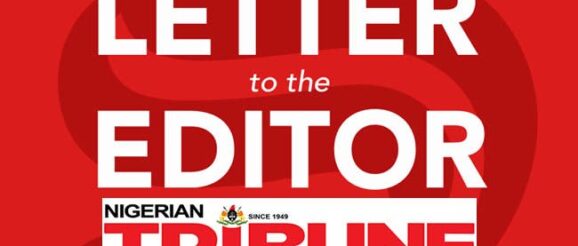Pushing Nigeria’s financial inclusion drive through innovation | Tribune Online

Nigeria has come a long way in its financial inclusion pursuit. From 2012 when the Central Bank of Nigeria (CBN) initiated the Nigerian Financial Inclusion Strategy (NFIS) till almost 10 years later, a lot has happened. One of the advancements is a service which enables customers to withdraw cash via mobile money agents from their bank accounts without the use of an Automated Teller Machine (ATM) or card. This cardless cash withdrawal service utilises a secure gateway that protects customers against fraudulent transactions and requires validation using their bank PIN.
But how important is this? While there has been progress with financial inclusion in Nigeria, data from Enhancing Financial Innovation and Access (EFInA) revealed that as at 2018 only 59.1 per cent of women compared with 67.5 per cent of men were financially included representing a gender gap of 8.4 per cent.
Although there is a slight progress from the 9.8 per cent recorded in 2016, the gap must be closed sooner. This is considering that there are about 2.8 million more women than men in Nigeria. Without closing the gap, Nigeria can only dream of reaching the 95 per cent inclusion target set by the CBN for 2024.
Like in the case of many developing countries, mobile money is more likely to close the financial inclusion gap among women than regular financial institutions and bank accounts.
So how can Nigeria close the gender gap and attain her financial goal efficiently? The idea is for all financial service providers to work in synergy allowing the disruption of technological innovation to take the lead. If the traditional banks could achieve this alone, we will have a rather insignificant exclusion percentage by now. It is reasonable that the CBN introduced the NFIS and, later, agent banking structures, allowing interested organisations to contribute effort to financial inclusion. The nature of mobile money, aided by agent banking, makes it easier and cheaper for financially undeserved communities to access basic financial services.
The challenge still remains that many among the financially undeserved are unable to afford smartphones and are quite digitally illiterate. This is in addition to the lack or scarcity of banking branches and ATMs in rural and peri-urban areas which accommodates a majority of the unbanked and undeserved.
Hence, this huge number are excluded from using basic financial services. Obviously, it will take more than technology to achieve the CBN’s financial inclusion goal by 2024. What is needed is more collaborative effort among the banks and other financial service providers, especially institutions with capable agent network spread across the country.
Victor ILO,
YOU SHOULD NOT MISS THESE HEADLINES FROM NIGERIAN TRIBUNE
In spite of the huge investment in the water sector by the government and international organisations, water scarcity has grown to become a perennial nightmare for residents of Abeokuta, the Ogun State capital. This report x-rays the lives and experiences of residents in getting clean, potable and affordable water amidst the surge of COVID-19 cases in the state.
